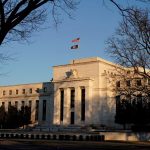Discussion around the potential for a recession is becoming less common among American business executives. Ever since the Federal Rserve began raising interest rates in early 2022, corporations and investors have braced for how a recession might play out. Now, the topic is losing its luster on earnings calls held by the largest U.S. companies as it becomes increasingly likely that inflation has been cooled without causing an economic contraction. The word recession came up on the fourth-quarter earnings calls of 47 companies in the S & P 500, according to market data platform FactSet. That’s the lowest number since the end of 2021. Another way of looking at it: Compared with the same three-month period a year ago, the word was mentioned on less than one-third of the number of calls. And despite coming off a period plagued with economic concerns, the fourth-quarter stat came in below the five- and 10-year averages of 85 and 61, respectively. Sweeter chatter When recession chatter did come up, the tune was often sweeter. Executives pointed to a better macroeconomic environment than what they saw in prior quarters. Everyone “seems to be more optimistic this time this year compared to this time last year,” said John Wall, the finance chief of technology company Cadence Design Systems . “At this time last year, everyone was asking me, ‘When was the recession going to happen?'” The gross domestic product grew at a rate of 3.2% in the final quarter of 2023. While down from the prior three-month period, the measure of all goods and services clearly showed the economy dodging a recession once considered all but unavoidable. Cadence’s Wall isn’t alone in his confidence. Almost half of the more than two dozen finance chiefs surveyed by CNBC said they expect the Federal Reserve to control inflation without a recession, a scenario known as a soft landing. Another nearly 15% of respondents to CNBC’s CFO Council survey said they believed a recession had already taken place. Improved sentiment came as almost three out of every four companies surpassed Wall Street expectations in the latest quarter, according to FactSet. One of those was commercial real estate developer CBRE , which topped analysts’ consensus estimates for both revenue and income in its fourth quarter. Looking ahead to 2024, CFO Emma Giamartino said the Dallas-based company’s full-year guidance is “contingent” on the Fed cutting short-term interest rates and the economy skirting a recession. For the full year, CBRE is forecasting between $4.25 and $4.65 in core earnings per share. But Giamartino said much more of that than usual will come in the second half of the year, coinciding with when the central bank is now expected to start easing back on interest rates. Eye on the consumer In recent years, consumer-facing businesses have monitored their customer behavior for signs of weakness as inflation has pinched pocketbooks. At Costco , the wholesale club said its Kirkland Signature store brand had seen increased popularity when shoppers prioritized value amid rising prices. But CFO Richard Galanti said the trade-down trend was short-lived. “People were, in my view, switching a little bit out,” Galanti told analysts earlier this month. “But that’s changed. We don’t see that as much anymore.” Extra Space Storage said demand has held up as customers juggle living situations, especially with 30-year mortgage rates sitting near 7% . Almost half of storage users said they are getting units as they move between apartments, according to CEO Joseph Margolis. “The housing market certainly will help, but it’s not the sole driver of demand for self-storage,” Margolis said on the Salt Lake City-based firm’s call with analysts late last month. “More transition is just good.” Extra Space is cautious about anticipating lower interest rates too soon. In drafting guidance for future financial performance, the company doesn’t expect levels to come down in time to boost the summer housing market. Still, Margolis acknowledged that avoiding economic contraction is good for business. Extra Space was one of 37 S & P 500 companies using the term soft landing during fourth-quarter earnings calls, the highest number in at least three years, according to FactSet data. “A strong economy is always better than a weak economy,” Margolis said. “All indications are now that we’re going to have more of a soft landing than a recession.” Improving dealscape After higher interest rates led to a slump in mergers and acqusitions, executives are wondering if 2024 can mark a rebound for deal volume if the cost of borrowing drops. Host Hotels said the transaction market can benefit as improved macroeconomic sentiment leads to more visibility on operating performance. The upscale hotel investor said that with $2.9 billion in total liquidity, it’s well positioned to make acquisitions. That’s an outlook shared across sectors ranging from real estate to technology. Asphalt and concrete maker Vulcan Materials , for example, whose leadership called 2024 a year of “catch-up” in the space, also anticipates more deals. “While it was pretty quiet in 2023 with a lot of unknowns out there, I think it will be very busy in 2024,” CEO J. Thomas Hill said of the merger and acquisition environment. “I would expect us to bring some deals to the finish line.” ‘Difficult to predict’ To be sure, some executives are less sure they’re in for a stronger year, even if a recession has been avoided. It’s “still very difficult to predict” when demand for home improvement products will pick up, Lowe’s CEO Marvin Ellison said. Though growing expectations of a soft landing are grounds for optimism, he said it’s unclear how long it would take for consumers to shift spending habits even after interest rates start to retreat. Depressed home sales remain a cause for concern, Ellison said. Mortgage levels are still too high to encourage those locked in at lower rates to move, he said, which is typically a natural catalyst for home improvement spending. The North Carolina-based retailer has also been hurt as Americans chose to spend on experiences like travel , football games or concerts rather than goods after the pandemic, according to the chief executive. “The consumer is financially healthy, but in this post-pandemic timeframe, customers are still showing a preference for spending on services ,” Ellison told analysts late last month. “While we anticipate these trends will normalize, the timing is uncertain.”
Read the full article here




